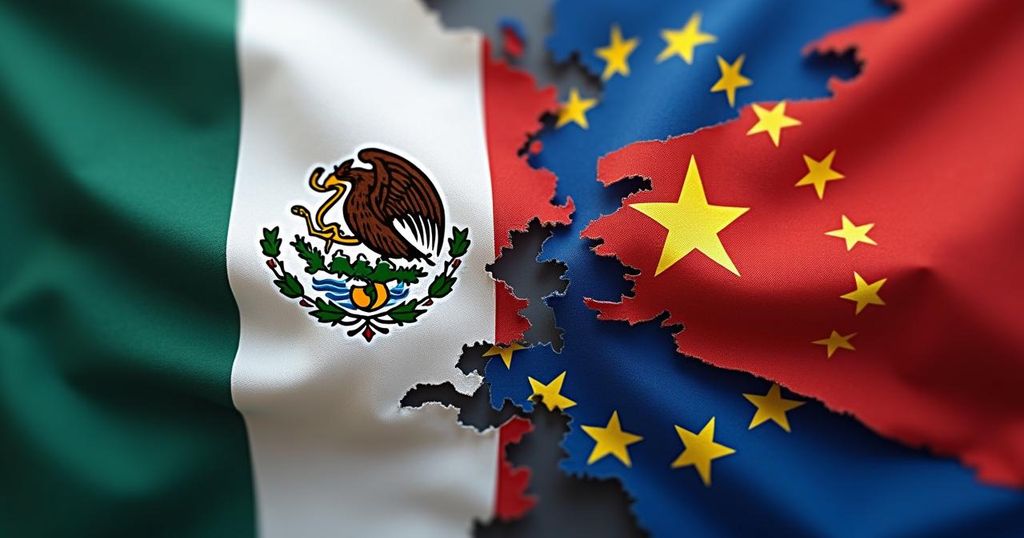Former President Donald Trump plans to seek renegotiation of international trade deals, claiming that America has been negatively impacted by countries such as Mexico, China, Canada, and the European Union. He aims to revitalize the domestic automotive industry and proposes a 200% tariff on Chinese auto imports from Mexico, emphasizing a need for better trade agreements.
Former President Donald Trump has indicated that, if elected in the upcoming November elections, renegotiating international trade deals will be among his primary objectives. During an appearance on “Sunday Morning Futures,” Trump expressed that America has been “screwed” by several nations, including Mexico, China, Canada, and the European Union. He highlighted his unique business approach, stating, “There are always things that you can do better. I got a clause that gives me the right to re-negotiate [the USMCA]. Who else would think of that except a business person? A good one — I’m a really good business person.” Trump proposed a revised U.S.-Mexico-Canada Agreement as part of a broader initiative aimed at stimulating domestic job growth and rejuvenating the automotive sector. He previously declared his intention to impose a 200% tariff on all Chinese automobile imports from Mexico, a move he argued would render such imports “un-sellable” in the United States. Mexico is noted as the largest export market for U.S. automotive parts and ranks as the fourth-largest producer of those parts globally, based on information from the International Trade Administration. Additionally, recent reports from various Latin American business news outlets indicated a rise in Mexico’s share of the U.S. auto parts imports market, increasing from 38% in 2017 to 42.5% in 2023. In further statements, Trump emphasized his desire to negotiate better trades. He stated, “I want to take advantage now of the car industry.“ He referenced his resolve to enhance trade agreements and mentioned that NAFTA, which he firmly believed was detrimental, needed to be dismantled due to its numerous errors and oversights. Reflecting on his prior administration’s achievements, Trump remarked on successful deals made with countries such as Japan and South Korea, underscoring the United States’ significant military presence in the region. He concluded with a mention of his stance against China, asserting, “I said to China, ‘You can’t buy oil, and if you buy one barrel of oil, I’m not doing any business with you in the U.S. You’re shut out. We’re going to go cold-turkey.'”
The discussion surrounding international trade has significant implications for the U.S. economy, particularly regarding relations with key trading partners. Former President Trump has consistently criticized past trade agreements, claiming they harm American interests and job growth. The U.S.-Mexico-Canada Agreement (USMCA), which succeeded NAFTA, has been a focal point of his critiques and proposed renegotiations. Trump’s business-oriented perspective emphasizes a need for adjustment in trade policies to better reflect America’s economic potential, specifically in the automotive sector. With growing concerns over imports from countries like China and the increasing dependency on Mexican automotive parts, Trump’s proposed tariffs signify a strategic move to alter international trade dynamics favorably for U.S. manufacturers.
In summary, Donald Trump articulated a vision for re-negotiating international trade deals if he returns to the presidency. He condemned past agreements and expressed a commitment to advocating for better terms that benefit American economic interests, particularly in the automotive industry. His proposals underscore a strong stance against imports from certain nations, particularly focusing on tariffs as a tool for achieving fair trade practices.
Original Source: www.foxnews.com






